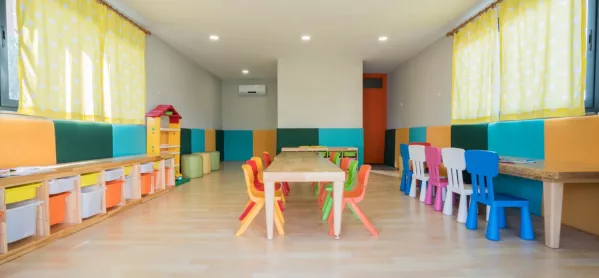The vast majority of early years practitioners say they are being asked to produce more paperwork than they are actually officially required to, a poll shows.
The Early Years Alliance said that in the majority of cases respondents said this extra workload was being carried out to produce documents “in case Ofsted asked for it”.
In the survey, 84 per cent of respondents said they thought they were producing more paperwork than is required under the Early Years Foundation Stage statutory framework.
Quick read: Five things we need to ask about EYFS
Early years funding: Government gives £66m to early years
Comment: Do we still need a staggered start to the year?
The Early Years Alliance revealed that almost three-quarters of respondents (70 per cent) said they completed some additional paperwork in case an Ofsted inspector asked for it.
The findings follow the alliance’s research on mental health in the sector, which found that 78 per cent of practitioners said paperwork and administrative work was a regular source of stress.
Early years workload issues
Other findings from the new survey, which included Reception and nursery classes as well as other early years settings, include:
- More than half (59 per cent) of all respondents said that their internal processes required more paperwork than was necessary to meet “best practice standards” within their own setting;
- Some 25 per cent said the work was being done to meet the requirements of the setting’s owners or senior management;
- Around a third (35 per cent) reported that paperwork burdens were linked to meeting local authority requirements;
- Almost a third (29 per cent) said they were doing the work because they wanted to protect themselves against parental complaints.
The survey showed that the volume and content of paperwork being completed varied across different settings and in different local authority areas.
More than two in five (42 per cent) respondents said they had received conflicting information from different agencies or organisations about reporting incidents or concerns.
The Early Years Alliance said that a workload advisory group, with representatives from all parts of the sector, has now reviewed the findings from the survey.
Neil Leitch, chief executive of the Early Years Alliance, said: “We’re pleased that Ofsted and the Department for Education have agreed that our top priorities must be to address the ‘just in case’ approach we have heard so much about from the providers who took part in our research, as well as inconsistency, duplication and complexity at local authority level.
“No paperwork should be so burdensome that it causes stress or directs time and attention away from the learning experience of the child.
“This is why we are working to develop practical solutions so that providers can feel more confident during Ofsted inspections and when working with local authorities.”
Commenting on what is expected under Ofsted’s new inspection framework, Wendy Ratcliff, an inspector specialising in the early years, said: “We hear all sorts of myths about what paperwork inspectors might want to see, particularly around assessment. We shared the important findings of this survey during our recent inspector training.
“Inspectors and providers involved in education inspection framework pilot inspections said they welcome the move away from looking at assessment data.
“The early years inspection handbook makes clear that we’ll spend most of the inspection observing and discussing children’s experiences and learning, and not looking at unnecessary paperwork.
“We continue to work hard to bust myths about inspection and paperwork. We’ll keep these survey findings under review as we introduce the new framework.”




